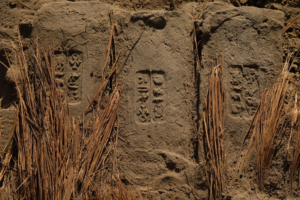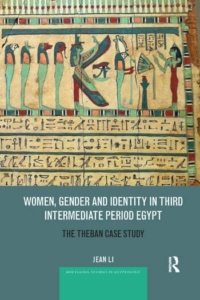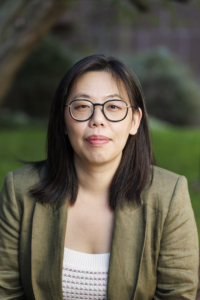
06
SepARCE-Chicago: Walls, Work, and Women: Reflections from the 2024 el-Hibeh Season on the Paradox of Exceptionalism by Dr. Jean Li
- Chicago
- In-Person/OnlineBreasted Hall, ISAC
- + Add to Calendar
Lecture Information

Stamped bricks from el-Hibeh, Egypt. Courtesy of the Berkeley el-Hibeh Project
 Women have been subjects of study since the inception of Egyptology. The results of scholarship suggest that while in general, ancient Egyptian women had more freedoms and privileges than many of their ancient contemporaries, they still appeared to play secondary roles in their own society. When women’s roles are discussed, their activities and agency are often portrayed as exceptional. For example, titles of elite women are characterized as honorary or ceremonial, and therefore, exceptional. On the other hand, while there is nothing exceptional about the thought of non-elite women working, the work they do are exceptionally, considered “women’s work.” This “paradoxical exceptionalism” of ancient Egyptian women hinders explorations of nuance in their roles and activities. I explore this idea through discussions of a corpus of worked bone objects found in the excavations of a section of city walls of el-Hibeh during the 2024 Season.
Women have been subjects of study since the inception of Egyptology. The results of scholarship suggest that while in general, ancient Egyptian women had more freedoms and privileges than many of their ancient contemporaries, they still appeared to play secondary roles in their own society. When women’s roles are discussed, their activities and agency are often portrayed as exceptional. For example, titles of elite women are characterized as honorary or ceremonial, and therefore, exceptional. On the other hand, while there is nothing exceptional about the thought of non-elite women working, the work they do are exceptionally, considered “women’s work.” This “paradoxical exceptionalism” of ancient Egyptian women hinders explorations of nuance in their roles and activities. I explore this idea through discussions of a corpus of worked bone objects found in the excavations of a section of city walls of el-Hibeh during the 2024 Season.
Speculations on the identification and function of these objects became the catalyst for my current reflections on issues of cognitive constructs of gender and disciplinary approaches to the study of ancient Egyptian women.
Speaker Bio
 Dr. Jean Li received her PhD from the University of California Berkeley. She is a long-time member of the Berkeley el-Hibeh, Egypt project. Currently she serves as Chair of the department of History at Toronto Metropolitan University.
Dr. Jean Li received her PhD from the University of California Berkeley. She is a long-time member of the Berkeley el-Hibeh, Egypt project. Currently she serves as Chair of the department of History at Toronto Metropolitan University.
Jean’s research focus is theoretical approaches to the archaeology of gender and women in the Third Intermediate Period